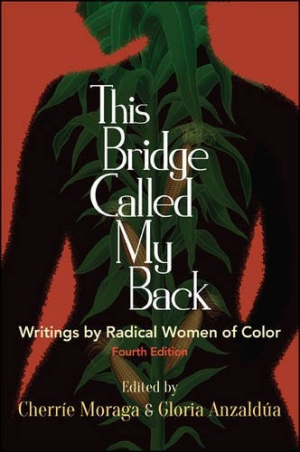This Bridge Called My Back, Fourth Edition
Writings by Radical Women of Color
- 2015 INDIES Finalist
- Finalist, Anthologies (Anthologies)
Powerful poetry and prose offers accessible analyses of women’s lives, regardless of race, age, or nationality.
The fourth edition of This Bridge Called My Back returns to circulation the collected artwork, essays, and poems of a self-described group of “radical women of color.” The anthology was first published in 1981, under the guidance of editors Cherríe L. Moraga and the late Gloria E. Anzaldúa. Given that this edition is a retrospective work, the first questions to ask are, Do the writings remain relevant to a contemporary feminist dialectic? and, Have they survived the passage of time without having been diminished to mere historical artifact? For anyone who approaches this book with an engaged intellect, the answer to those questions is an unequivocal “yes.”
These essays and poems do more than just revisit the hopes, fears, frustrations, and accomplishments of women of color circa 1981; they also shed light on concerns women continue to face today. Native American feminists of 2015 may still share Max (formerly Anita) Wolf Valerio’s dilemma of wanting to honor his ancestry without glossing over the patriarchal nature of his people’s cultural history. Asian American women may yet see something of themselves in Mitsuye Yamada’s realization that, among her own people, her political convictions don’t “make any difference to anyone,” not because she is Japanese American, but because she is a girl. And who is to say that Cheryl Clarke’s assertion that “women are kept, maintained, and contained through terror, violence, and spray of semen” might not resonate with a generation of women who perceive an epidemic of rape on college campuses, domestic violence close to home, and alarming stories of gang rape, mass kidnappings, sex trafficking, and slaughter of women and girls throughout the world?
If the essays in the anthology bear some of the indelible verbal and social markers of the early 1980s, the poetry seems timeless. Stripped of the academic dialect that characterizes some of the more challenging prose pieces, the poems are both direct and accessible. There are lines of poetry here sure to stir the imagination and connect with all ages, races, and genders.
Equal parts historical document and intellectual challenge, This Bridge Called My Back deserves to be picked up by a new generation of radical women.
Reviewed by
Diane Taylor
Disclosure: This article is not an endorsement, but a review. The publisher of this book provided free copies of the book to have their book reviewed by a professional reviewer. No fee was paid by the publisher for this review. Foreword Reviews only recommends books that we love. Foreword Magazine, Inc. is disclosing this in accordance with the Federal Trade Commission’s 16 CFR, Part 255.

